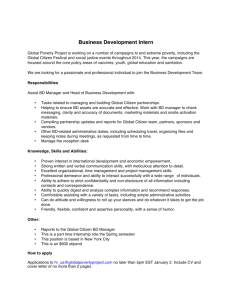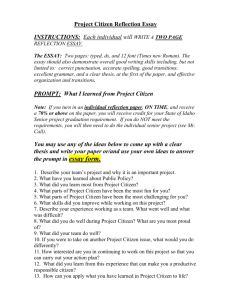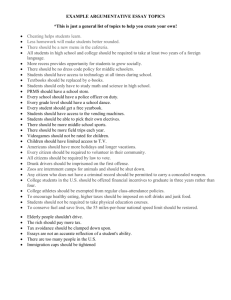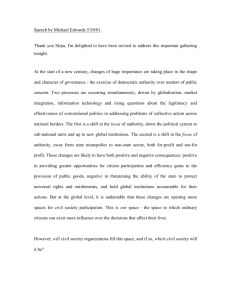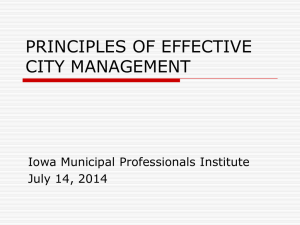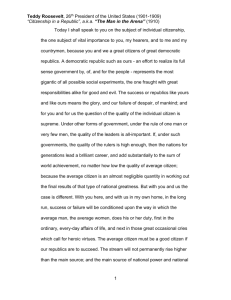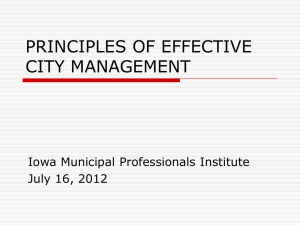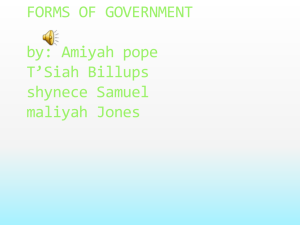Summary and Final Exam Review Unit Eight.doc
advertisement
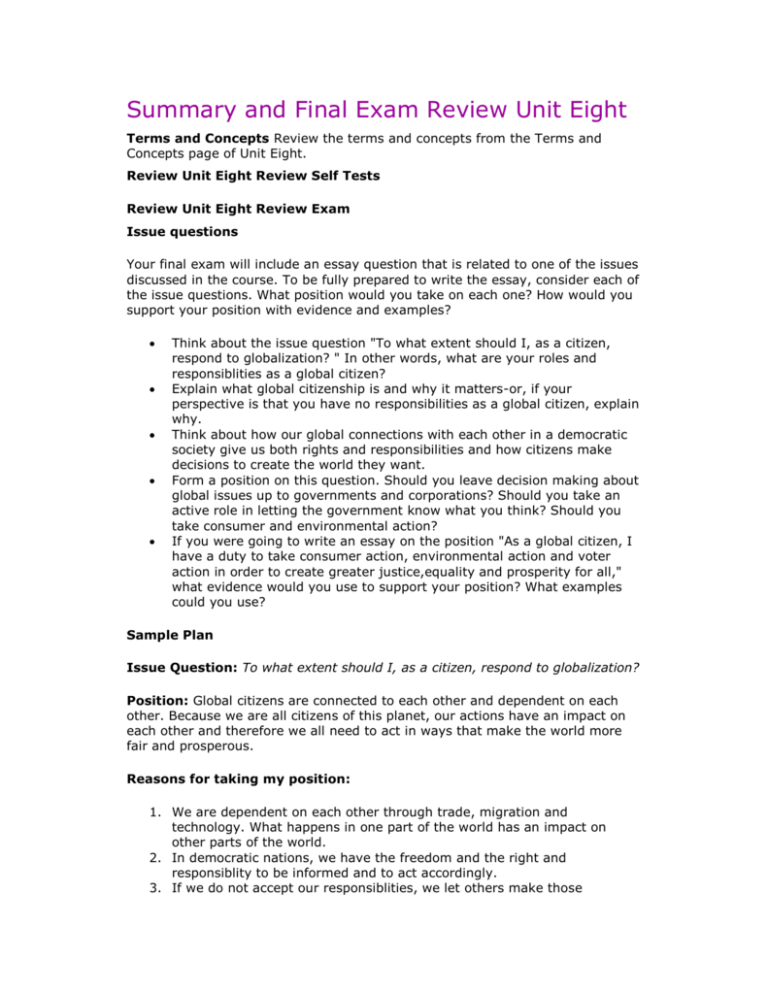
Summary and Final Exam Review Unit Eight Terms and Concepts Review the terms and concepts from the Terms and Concepts page of Unit Eight. Review Unit Eight Review Self Tests Review Unit Eight Review Exam Issue questions Your final exam will include an essay question that is related to one of the issues discussed in the course. To be fully prepared to write the essay, consider each of the issue questions. What position would you take on each one? How would you support your position with evidence and examples? Think about the issue question "To what extent should I, as a citizen, respond to globalization? " In other words, what are your roles and responsiblities as a global citizen? Explain what global citizenship is and why it matters-or, if your perspective is that you have no responsibilities as a global citizen, explain why. Think about how our global connections with each other in a democratic society give us both rights and responsibilities and how citizens make decisions to create the world they want. Form a position on this question. Should you leave decision making about global issues up to governments and corporations? Should you take an active role in letting the government know what you think? Should you take consumer and environmental action? If you were going to write an essay on the position "As a global citizen, I have a duty to take consumer action, environmental action and voter action in order to create greater justice,equality and prosperity for all," what evidence would you use to support your position? What examples could you use? Sample Plan Issue Question: To what extent should I, as a citizen, respond to globalization? Position: Global citizens are connected to each other and dependent on each other. Because we are all citizens of this planet, our actions have an impact on each other and therefore we all need to act in ways that make the world more fair and prosperous. Reasons for taking my position: 1. We are dependent on each other through trade, migration and technology. What happens in one part of the world has an impact on other parts of the world. 2. In democratic nations, we have the freedom and the right and responsiblity to be informed and to act accordingly. 3. If we do not accept our responsiblities, we let others make those decisions for us. They might not act in our best interests. This undermines democracy and freedom and won't lead to the world we want. Examples to support my position For example, if the oil producing countries of the world decide to raise their prices, we all have to pay. If a nation such as China has poor environmental protection, the emissions they create damage the environment for every one. If powerful nations force their values on other nations, this can breed violence and even terrorism that has an impact on everyone. Democracy is government "by the people, for the people, and of the people." While all the nations of the world are not democracies, people who do live in democracies must stay informed about global issues and act accordingly. We choose who to vote for and inform our political leaders about how to act. For example, we can choose to elect political parties that will protect the environment and encourage better human rights around the world. In democratic capitalist societies, we have the freedom to shop where we want. We can support companies with good environmental practices, or good labour laws. People who have demanded better working conditions for people in outsourced factories in other countries, like Gap, have led to better situations for those workers. We can take our own responsible actions in environmental protection. If people don't get involved, governments can take action that the majority of people don't like. Voter turnout is very low in countries like Canada, where a lot of people do not like the actions of the government. If they got more involved, maybe the elected officials would better represent their views. The same goes for corporations. If people don't let them know what they think, they can continue to pollute, provide their workers with low pay and ignore human rights. For example, fo many years, shoppers could never buy organic produce. As they began to demand products that were safer and more sustainably produced, grocery stores and even large chains like Walmart have been providing them with the products they want. This has led to a large increase in organic farmer, less use of pesticides and more sustainable practices in agriculture.

